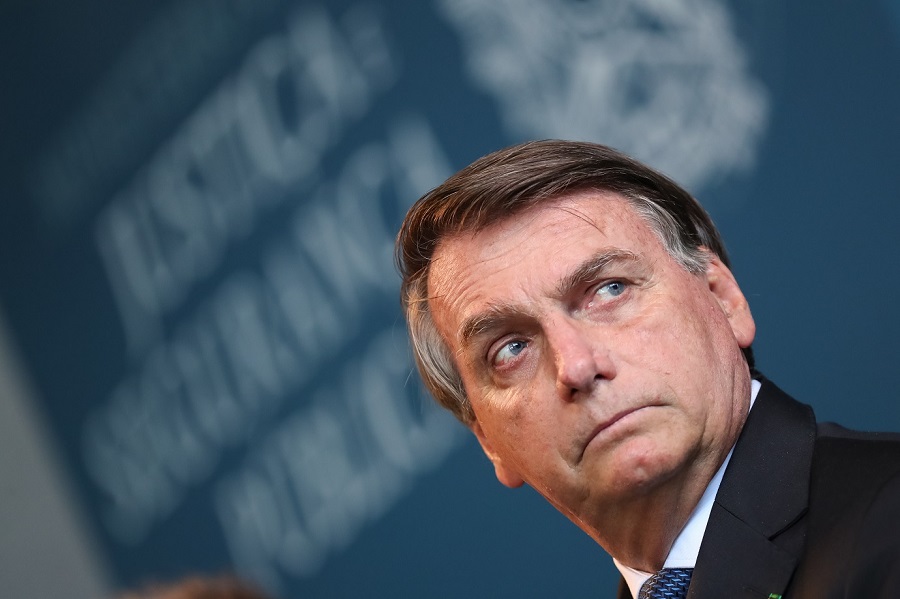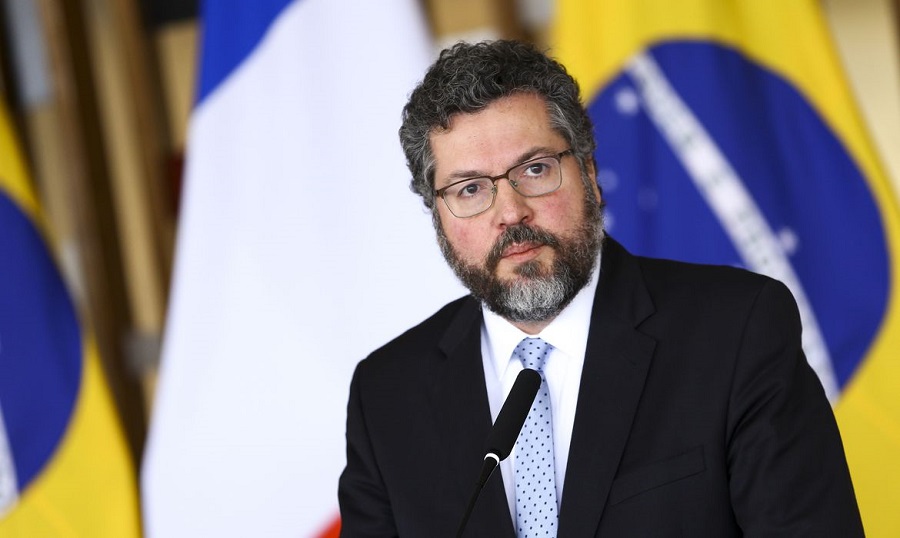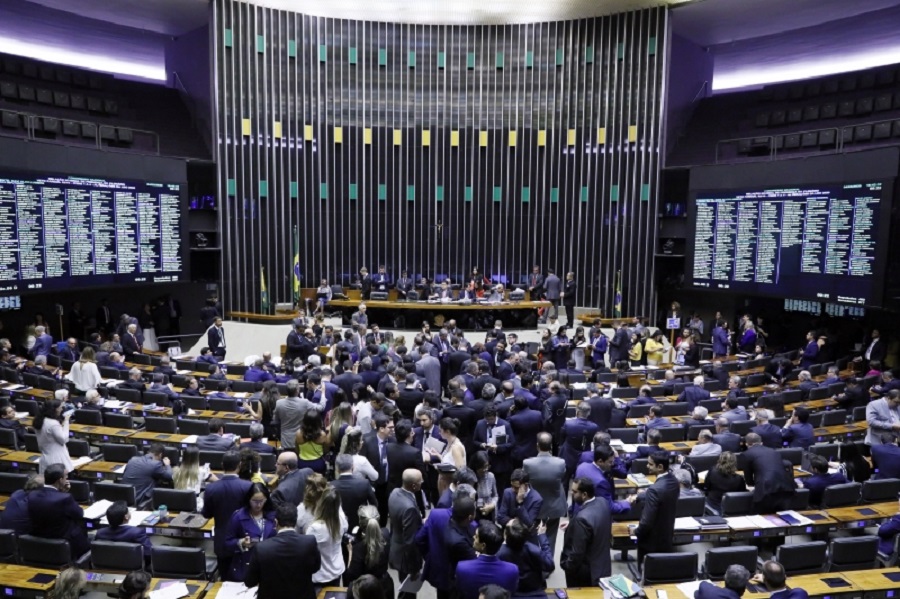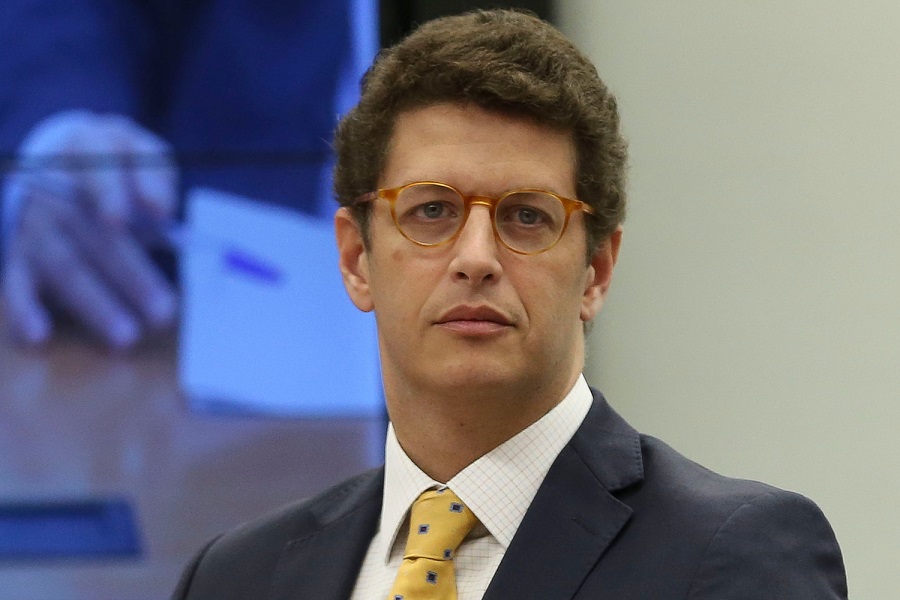RIO DE JANEIRO, BRAZIL – President Jair Bolsonaro carried out a cabinet reform that changes almost a quarter of his 22 ministries, including the strategic Defense portfolio in a government that wants to exhibit symbiosis with the Armed Forces.
Under pressure from the coronavirus crisis, which has transformed Brazil into a worldwide epicenter of deaths and threatens to compromise economic recovery, the presidential cabinet has changed six ministers to avoid the opening of a parliamentary commission of inquiry and bar any attempt to begin impeachment proceedings. With this change of chairs, Bolsonaro seeks to meet the demands of his parliamentary base, whose axis is the volatile Centrão group, and the clamors of the business community and economic agents who support his government.

The changes occurred in the ministries of Foreign Relations, Defense, Chief of Staff, Government Secretariat, and Justice, as well as the Federal Solicitor General’s office. Two other cabinet posts are rumored to be changed this week: the Environment, an Achilles heel for the Government’s image abroad, and the General Secretariat of the Presidency.
There were also changes in second level positions, such as the Secretariat of Basic Education at the Ministry of Education. And it is also planned to change the entire board of directors of the National Fund for the Development of Education, two of the sectors that account for most of the resources of the Ministry of Education (MEC), one of the highest-budget cabinet positions.
The Minister of Education, Milton Ribeiro, was preserved, as long as he ceded the second-echelon positions to the Centrão. Other changes are expected to occur in agencies linked to the Ministry of Economy, such as Dataprev and Serpro. The same group also has its eye on second and third level positions in the Ministry of Health, recently taken over by Marcelo Queiroga, replacing General Eduardo Pazuello.
Ministers Ernesto Araújo (Foreign Relations), Fernando Azevedo e Silva (Defense) and José Levi Melo Amaral (AGU) have left the government. They will be replaced, respectively, by the diplomat Carlos Alberto França, considered of little significance, General Walter Braga Netto, and attorney André Mendonça.
The latter two were already in the administration: the Chief of Staff and Justice, respectively. In Braga Netto’s place, there was a new reshuffle: General Luiz Eduardo Ramos will occupy the position, leaving the Government Secretariat to accommodate federal deputy Flávia Arruda (PL-DF).
The Justice Department is now placed under Federal Police detective chief Anderson Torres, who was until this Monday Public Safety Secretary of the Federal District. Torres is a personal appointment of Senator Flávio Bolsonaro (Republicanos-RJ), of whom he is a friend, and has the support of part of the MDB bench and the Centrão.
The fall of Ernesto Araújo was already considered a foregone conclusion, after the repeated friction he had with the Federal Senate and diplomatic representations of other countries, especially China. The Chinese are Brazil’s main trade partners. The choice of Araújo’s successor surprised most analysts.

In principle, the favorite was Luis Fernando Serra, the current ambassador in Paris who is seen as a right-wing radical, just like the resigning minister. However, Bolsonaro chose his former chief of ceremony and current head of the Presidency’s special advisory board, Carlos Alberto França, a discreet career diplomat who has never headed posts abroad. The main difference between him and Araújo is that the new minister is not a follower of the doctrine of Olavo de Carvalho, the ultra-right-wing polemicist considered to be the ideological guru of Bolsonarism.
Radicalizing Defense
Of all the six changes, the least expected was in Defense. Whenever Bolsonaro needed to take advice from the military wing, Fernando Azevedo was called into the conversation, alongside Braga Netto, Ramos, and the head of the Institutional Security Cabinet, General Augusto Heleno. “General Fernando always did a good job. Nobody ever imagined that he would leave his post,” pointed out the president of the so-called “bullet caucus” in the House, Captain Augusto Rosa (Republicanos-SP).
Bolsonaro’s relationship with his defense minister has worn thin in recent months because he did not declare formal support for his government, and because he refused to fire two figures that the president considered had affronted him, the commander of the Army, Edson Pujol, and the head of the General Department of Personnel of the same force, General Paulo Sergio.
Last year, Pujol showed concern about the proliferation of the coronavirus. In a ceremony, he refused to touch President Bolsonaro’s hand and greeted him with a touch of the elbows. Paulo Sérgio, on the other hand, gave an interview at the weekend to the Correio Braziliense newspaper, in which he pointed out that fewer people died from Covid-19 in the Army than in the rest of the population because the institution decided to rely on social distancing campaigns, the use of masks, isolation, and mass testing to avoid contamination in the barracks -the opposite of what the president, a crisis denier, preaches.
Upon leaving office, Fernando Azevedo left dissatisfaction in the air and drew a line that he says he did not want to cross as a minister. “In this period, I preserved the Armed Forces as State institutions,” he said in his resignation letter. In military circles and among those who study the subject, there is concern that there will be an intensification of actions and that the president will try to bring the Army, Navy, and Air Force even more into the political arena. Some see Braga Neto as more aligned to Bolsonaro and, therefore, more radical than his predecessor.
In Congress, the new minister has always been called “the intervenor,” for having already been appointed federal intervenor in the area of Public Security in Rio de Janeiro, during the administration of President Michel Temer (MDB).

“Our democracy remains at risk because we see no signs that the military will disengage from the political game. Apparently, a hecatomb (sacrifice) is occurring in the Bolsonaro government, and when the president is cornered, he always moves forward. All these changes at this moment are not a good sign”, evaluated the political scientist Lucas Rezende, professor at the Federal University of Santa Catarina.
With Braga Netto’s departure to Defense and Ramos’ departure to the Chief of Staff, a vacancy opened up in Bolsonaro’s hard core, in the Government Secretariat, which is responsible for bridging the gap between the Executive and the Legislative branches. The nominee was Flávia Arruda (PL-DF), one of the parliamentarians closest to the president of the Chamber and leader of the Centrão, Arthur Lira (PP-AL).
Last week, Lira threatened to apply a bitter political remedy to the government if it did not change the course of the fight against the pandemic. He also demanded appointments to the positions that were promised to his political group in the election for the presidency of the House.
Flávia Arruda chaired the Mixed Budget Commission this year. In her first parliamentary term, she entered politics because her husband, the former governor of the Federal District, José Roberto Arruda, was prevented from running because he was being investigated in the scandal known as the “mensalão” (monthly graft payments to legislators).
As a senator, he was also involved in the Senate electronic panel tampering and resigned in 2001 in order not to be impeached.
With Flavia Arruda’s nomination, the Centrão officially occupies three ministries: Government Secretariat (Arruda), Communications (Fábio Faria), and Citizenship (João Roma). There are also dozens of second and third level positions in Brasilia controlled by the Centrão.
Another person who displeased Bolsonaro in recent months was Federal Solicitor General (AGU) José Levi. He refused to sign a complaint filed with the Supreme Court (STF) that aimed to prevent states and municipalities from enacting lockdowns as measures to restrict the movement of people to prevent the proliferation of the coronavirus. The president himself signed the complaint, which was summarily rejected by the STF.
With Levi’s firing, the president decided to send back to the AGU his faithful ally, André Mendonça, who had been Minister of Justice and Public Safety. In this way, he freed up one more vacancy for nominations sponsored by parliamentarians. Federal police detective Anderson Torres had been considered to take over the Federal Police last year, but did not get the necessary support at the time.

Now, Torres has the support of part of MDB and Centrão parties, in addition to the support of the senator and the president’s first-born son. The expectation is that he will promote new changes in the portfolio, increasing Bolsonaro’s control over the police.
The expectation in Brasilia is that the ideological core of the government will be almost completely undone with the resignation of Ricardo Salles from the Ministry of Environment. The president is under pressure to change him in the next few days. Another person who should be replaced is Onyx Lorenzoni, from the General Secretariat of the Presidency. He is a federal deputy and in recent months has seen his influence reduced.
Source: El País

